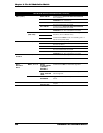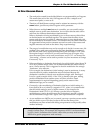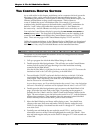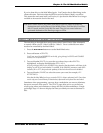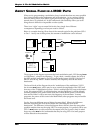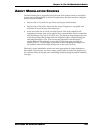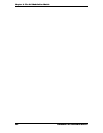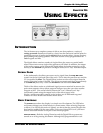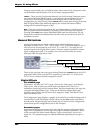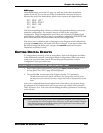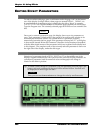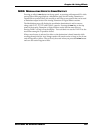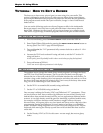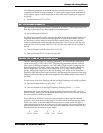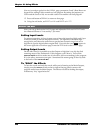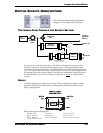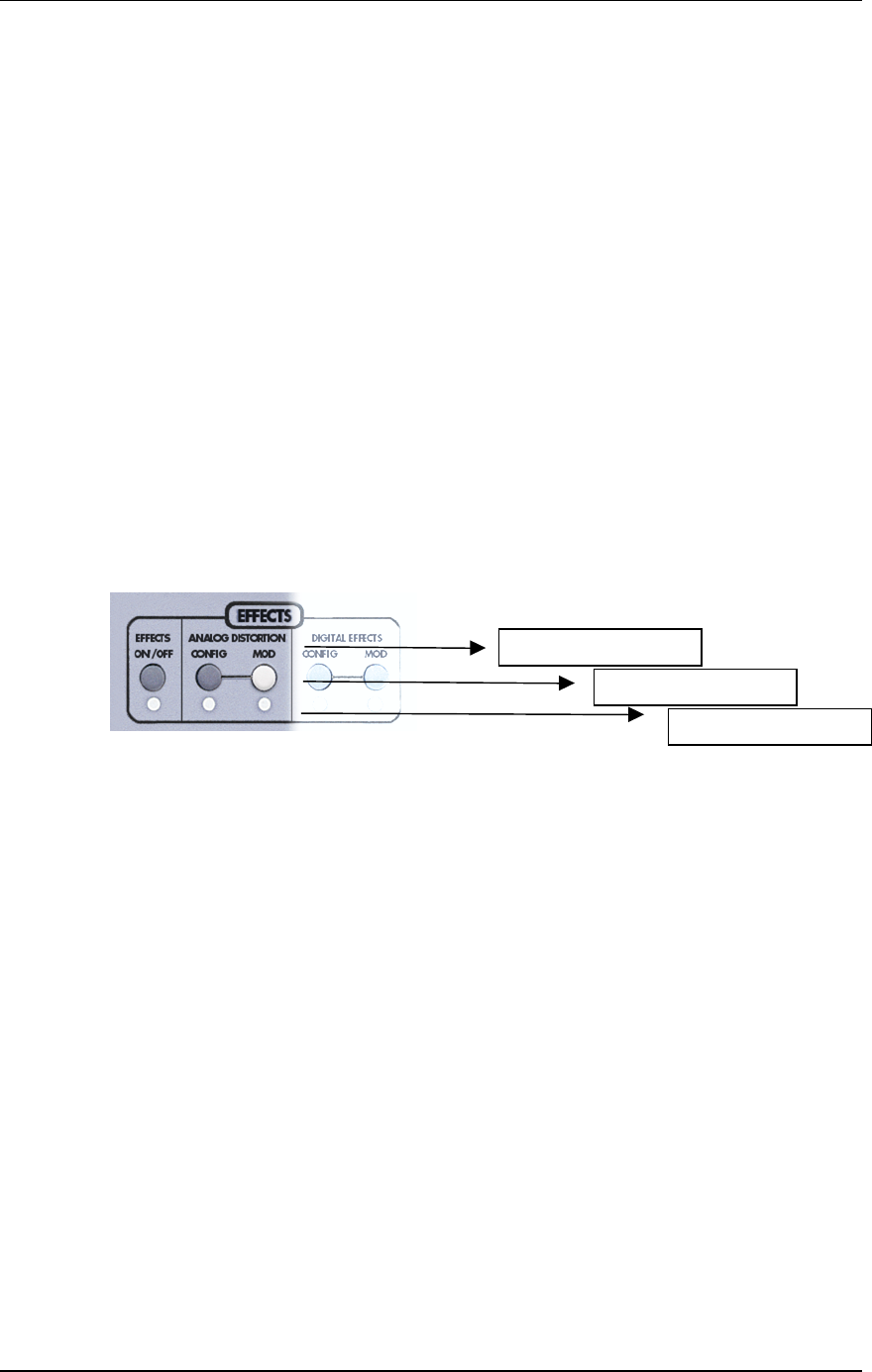
Chapter 10: Using Effects
204 ANDROMEDA A6 REFERENCE MANUAL
Program and each Mix, any and all distortions/effects stored with a Program or Mix
can be disabled with this button. The on/off status is programmable.
CONFIG – There are two Configuration buttons, one for the Analog Distortion system
and one for the Digital Effects system. A configuration is an arrangement of one or
more effects. Each Analog Distortion and each Digital Effect in the A6 use one
configuration at a time. Pressing either
CONFIG button enters either Analog Distortion
Edit or Digital Effects Edit mode and displays the current Distortion or Effects
settings for the selected Program or Mix.
MOD – Like many other functions in the A6, several parameters in the Distortion and
Effects systems may be modulated by envelopes, LFO’s and many other sources.
Pressing either
MOD button enters Modulation Edit mode for that system. The A6
displays the available mod destinations and allows the user to select any of the 79
modulation sources.
ANALOG DISTORTION
Analog Distortion has one simple configuration, with four different types of
distortion available:
EASY, LIGHT, HEAVY, and KILLER. It has three outputs, any or
all of which can be switched on or off:
MAIN, DFX1 and DFX2. The latter are two
separate inputs to the digital effects section, which are useful in multieffect (stereo-
input) configurations only. For example, you can have the left side of a chorus
distorted, while the right side is clean.
There’s only one page when you press Analog Distortion’s CONFIG button: the ANAFX
page which allows you to set the SEND (input) level, select the TYPE of effect, the
OUTPUT level, and turn the three outputs on and off.
Digital Effects
The CONFIG page
Soft button
1 is always the CONFIG page, which is the “home page” of the digital
effect in use. Here’s where you set the input and output levels, and if it’s a
multieffect of any kind, the mix between them. But most importantly, this page lets
you select the Digital Effects Type. There are 28 different configuration types
available, each of which fall into one of four categories: Single, Dual Stereo, Dual
Mono and Multi Chain.
The Configuration page displays a graphic of the effect block or blocks being used. If
a multi-effect is used, the display will also show you the order of the multi-effects
that the audio will pass through and whether this is a Stereo or Dual configuration
(more about specific configurations later in this Chapter).
Parameter pages
Soft buttons
2 through 6 are reserved for selecting the current configuration’s Edit
Pages: each configuration can have up to five pages of editable parameters. Here’s
where you make the effects sound different—long or short decays, fast or slow
speed, etc. The parameter pages are labeled differently depending on the type of
effect.
To Main out
p
ut
To Di
g
ital Effects 1
To Di
g
ital Effects 2



